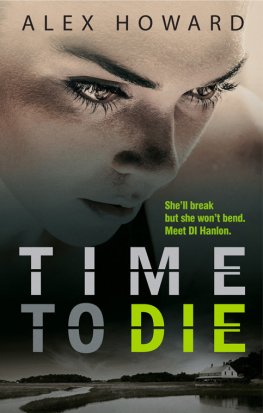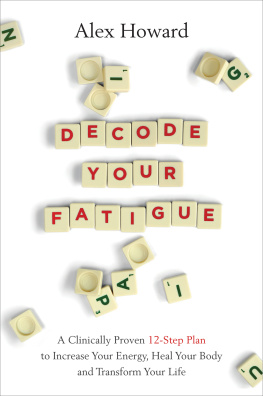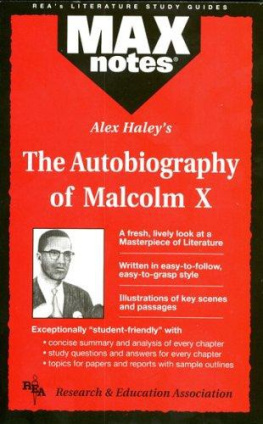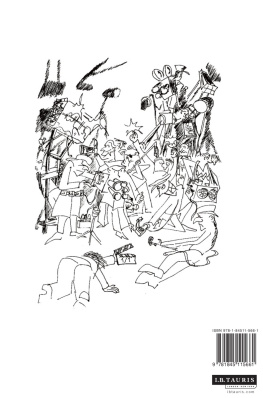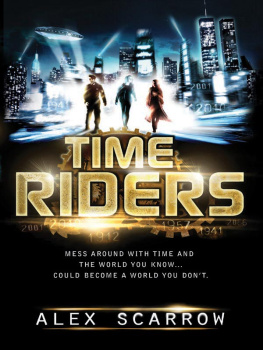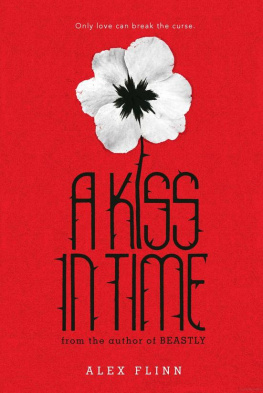Alex Howard - Time to Die
Here you can read online Alex Howard - Time to Die full text of the book (entire story) in english for free. Download pdf and epub, get meaning, cover and reviews about this ebook. genre: Detective and thriller. Description of the work, (preface) as well as reviews are available. Best literature library LitArk.com created for fans of good reading and offers a wide selection of genres:
Romance novel
Science fiction
Adventure
Detective
Science
History
Home and family
Prose
Art
Politics
Computer
Non-fiction
Religion
Business
Children
Humor
Choose a favorite category and find really read worthwhile books. Enjoy immersion in the world of imagination, feel the emotions of the characters or learn something new for yourself, make an fascinating discovery.
- Book:Time to Die
- Author:
- Genre:
- Rating:3 / 5
- Favourites:Add to favourites
- Your mark:
- 60
- 1
- 2
- 3
- 4
- 5
Time to Die: summary, description and annotation
We offer to read an annotation, description, summary or preface (depends on what the author of the book "Time to Die" wrote himself). If you haven't found the necessary information about the book — write in the comments, we will try to find it.
Time to Die — read online for free the complete book (whole text) full work
Below is the text of the book, divided by pages. System saving the place of the last page read, allows you to conveniently read the book "Time to Die" online for free, without having to search again every time where you left off. Put a bookmark, and you can go to the page where you finished reading at any time.
Font size:
Interval:
Bookmark:
Alex Howard
Time to Die
1
The compact, concrete shape of the World War Two gun emplacement crouched, hunkered down into the shallow, gravelly soil above the beach on the Essex side of the Thames Estuary near Southend. It overlooked the wide, grey shallow waters on whose far side lay the Isle of Grain and Sheerness. Hanlon guessed it was somewhere out there in those cold, steely waters that the proposed island airport for London might one day take shape. She thought, fleetingly, it would be a pity in a way if it happened. The North Sea waters had a chilly quality that she found rather beautiful. She looked around her slowly, the sky above enormous after Londons claustrophobic horizons. A heron stood on a boulder near the beach, shrugging its wings like an old lady arranging a shawl around her shoulders. Cormorants bobbed along on top of the water and she could see guillemots, their wings folded back like dive-bombers, thundering into the water. The calls of the birds floated towards her on the stiff sea breeze.
The tarmac track that led down from the main road above them was old, cracked and weed-grown. The ex-army buildings pitted, grey, artificial stone surface was now camouflaged with yellow, cream and blue-grey lichens and grey-green moss, so that it seemed almost organic, a part of the landscape like a strangely symmetric rock formation. There was a fissured, concrete apron next to the bunker and Hanlon pulled up adjacent to the large, white Mercedes van that she guessed belonged to the forensics team, then got out of her car. She stood for a moment by her Audi and closed her eyes. She felt the cold, fresh sea air against her skin and the breeze tugged at her shoulder-length dark hair. She could smell the metallic warmth of her car engine and the salt tang of the sea. The sound of the small waves breaking on the stony beach a hundred metres or so away were nearly drowned out by the throbbing of the generator next to the Mercedes. She could hear the keening of seagulls, much louder now, wheeling above in the sky. Hanlon stretched the powerful, sinewy muscles in her shoulders and arms and opened her eyes, which were as expressionless as the North Sea in front of her.
She looked out over the water, feeling its call. Hanlon loved swimming in the open sea. Earlier that morning, at 6 a.m., she had swum for a steady hour in her local swimming pool, but pool swimming was nothing compared to real salt water. She guessed at this time of year the temperature would be only two or three degrees, colder than a fridge. That wouldnt deter her. She could taste its saltiness, carried to her lips by the wind.
A red power cable looped its way from the generator through the heavy, open metal door of the bunker. The door was rusted and pitted by time and the elements, but still substantial. Hanlon stepped over the line of police crime-scene tape that secured the area, blowing like bunting in the sea breeze, and approached the building. Earlier that day, the place would have been bustling with her colleagues from Essex. Now the uniforms had gone and the outside of the bunker, included in the search area, reopened. She didnt go inside through the forbidding-looking portal designed, she guessed, to be blast-proof, but walked instead along the side wall until she came to one of its long, slit windows that overlooked the beach and the far horizon.
Hanlon had already spoken to the crime scene manager in charge to clear her access to the site and she remembered her conversation on the phone with the CSM. It had been straightforward enough. Weve done what we can with the access route to the crime, DI Hanlon. It was vehicular, weve searched the surrounding radius of the bunker to within half a kilometre, foreshore, beach, in case the body was brought in by sea or inland, on the off chance it was carried here, but nada. We assume it was driven here. The CSM had carried on. Basically, youre fine by us as far as access is concerned. Why the interest anyway?
The intonation of Hanlons voice conveyed a shrug. AC Corrigan wants me to have a look. Ask him. And thats how the call had ended.
The World War Two building still had a certain forlorn power about it even though its original purpose observation? Defence, maybe? was long forgotten or possibly preserved somewhere, buried deep in a government archive. Now it was being noted by officialdom again.
Hanlon peered in through the glassless window. Inside the hexagonal interior of the building she could see the two CSI men in their white disposable overalls, gloved and booted, masked, and in plastic caps, working in the blaze of two powerful arc lights powered by the generator outside. She watched as they carried on with their high-intensity light source photography.
The inside of the bunker was comparatively clean. The chained door had kept people out and there was none of the usual smell of urine or detritus like old beer cans, food wrappers, odds and sods of soiled clothing, cigarette ends or the drug paraphernalia of roaches from joints and needles that youd normally find in abandoned, solitary buildings the spoor of kids, tramps and junkies, the natural denizens of places like this. When shed first joined the force, places like this were always littered with scraps of photographs torn from pages of porn magazines. Shed often wondered why. If you wanted to look at porn, why do it in a dank, derelict building? Maybe you had to. That sort of litter had become a rarity these days. She guessed it was the digital revolution. Times moved on.
The bunker certainly wasnt odour-free, though. Hanlon had a keen sense of smell and her nose could detect the lingering aftermath of charred flesh and petrol that still coated its concrete shell. It smelt like burnt cooking, a barbecue gone horribly wrong. She looked upwards at the ceiling and there, as she thought she might, she could see small patches of black, greasy soot where bits of burnt remains had drifted in the updraft from the flames and come to rest.
Hanlon was invisible to the men inside working behind the glare of the lights and she watched unseen as the taller of the two figures started to put photographic equipment away into a dimpled, metallic, silver-coloured carrying case. Despite the noise of the breeze, she could hear their conversation clearly.
So, are we done now, Jim? one of them asked.
The smaller of the two men removed hat and mask, revealing a bald head and a thin, good-humoured face. She recognized him. Hanlon was glad it was James Forrest. He was old school, thorough and experienced, not the kind of man whod make foolish mistakes. In the last year Hanlon had seen two perfectly good verdicts overturned by defence lawyers because of stupid, procedural blunders. Forrest wouldnt do that.
Pretty much, Forrest said. Id like you to start packing all this stuff away. Im going outside now, Hanlonll be here soon.
What about the PolSA? asked the other man. Only after the scene had been signed off by that officer, the police search adviser, could the scene actually be cleaned and returned to normality. Hanlon guessed that in this case thered be no big rush. It was hardly in anyones way, like a stabbing on Oxford Street would be. The only people inconvenienced out here would be dog walkers and beachcombers.
Well secure the premises and speak to the SIO later, said Forrest.
The younger man carried on disassembling the cameras and putting the parts away in their respective compartments. It had been an unpleasant day. The girls naked body had been so charred theyd had to wrap her limbs carefully in oiled clingfilm so that when they moved her, she didnt break up. One of the officers present had made a joke about liking his meat well done. No one had laughed. So whats she like, boss, this Hanlon? They say shes a bit of a ball-breaker, said the young CSI.
Font size:
Interval:
Bookmark:
Similar books «Time to Die»
Look at similar books to Time to Die. We have selected literature similar in name and meaning in the hope of providing readers with more options to find new, interesting, not yet read works.
Discussion, reviews of the book Time to Die and just readers' own opinions. Leave your comments, write what you think about the work, its meaning or the main characters. Specify what exactly you liked and what you didn't like, and why you think so.

